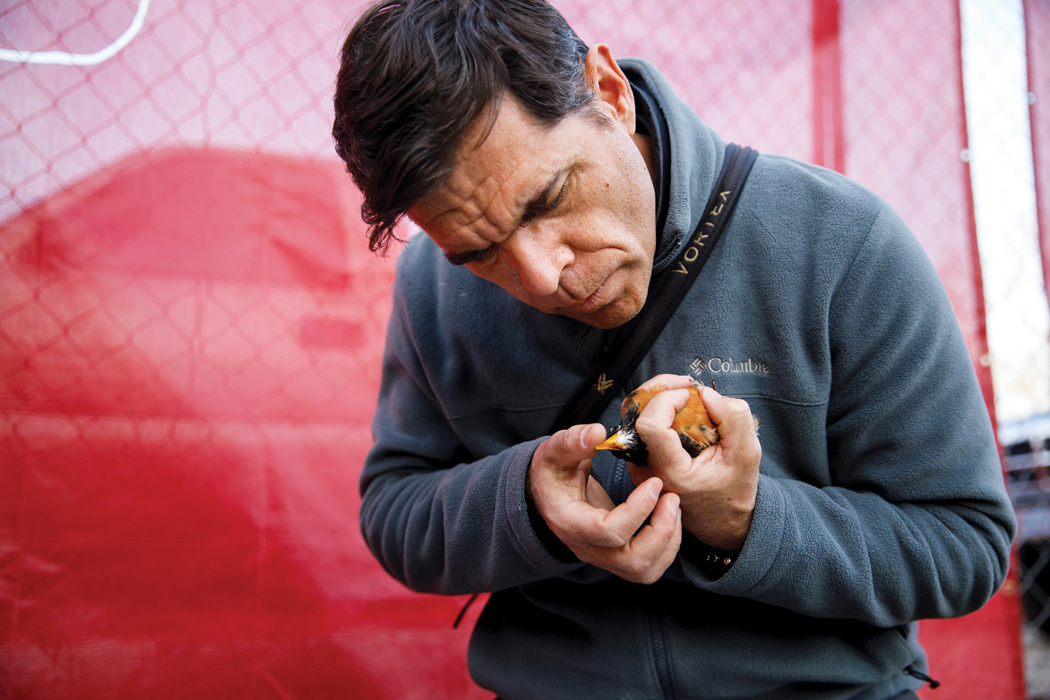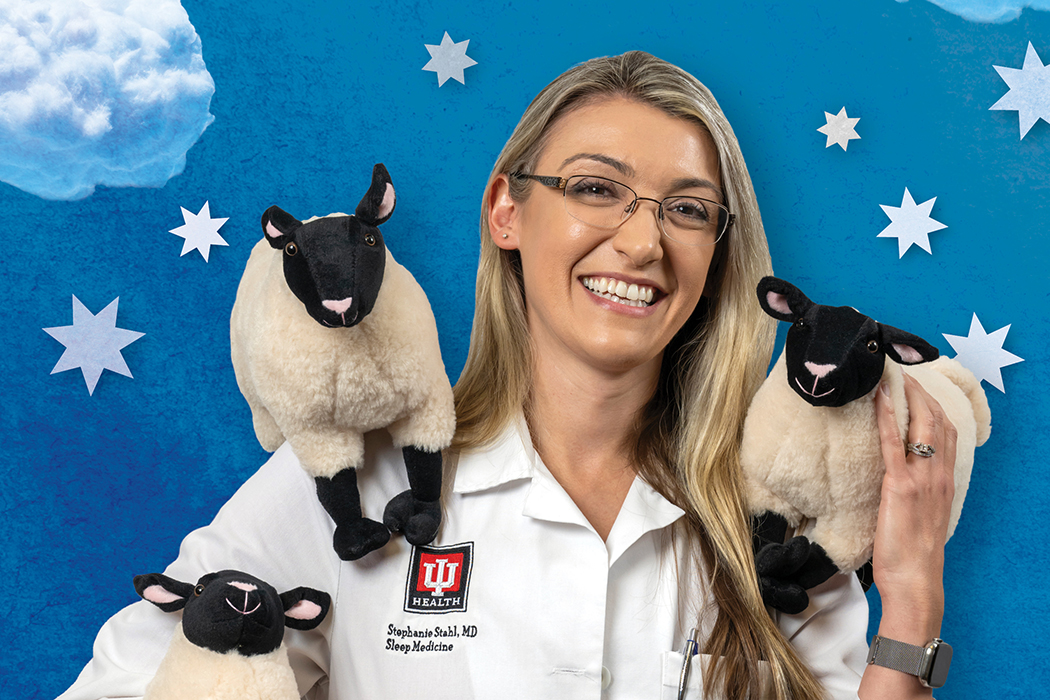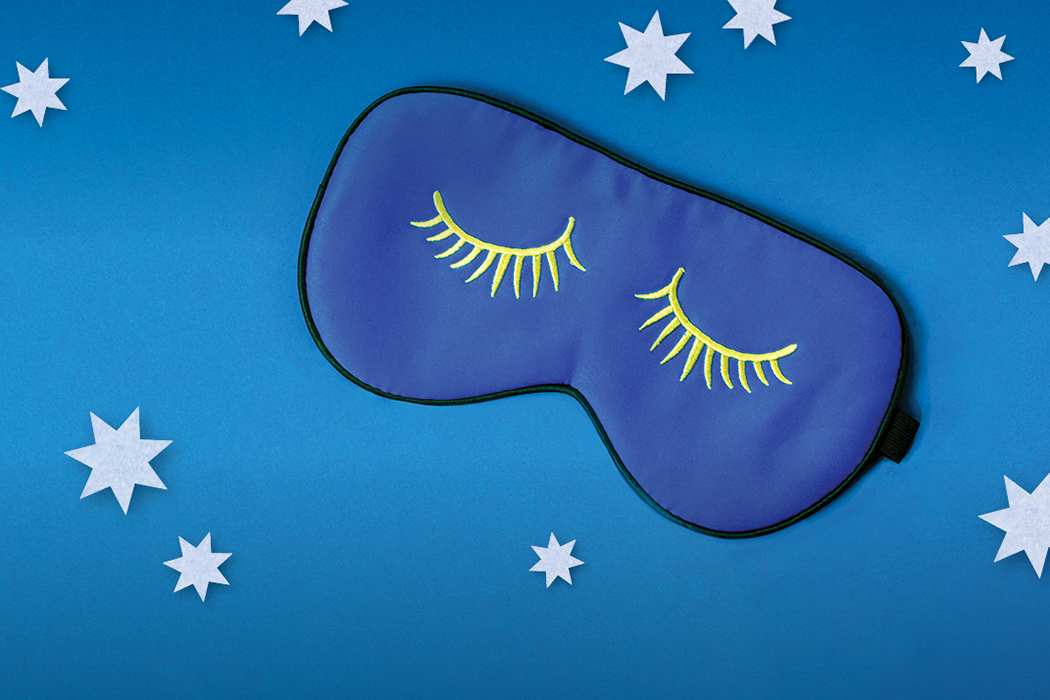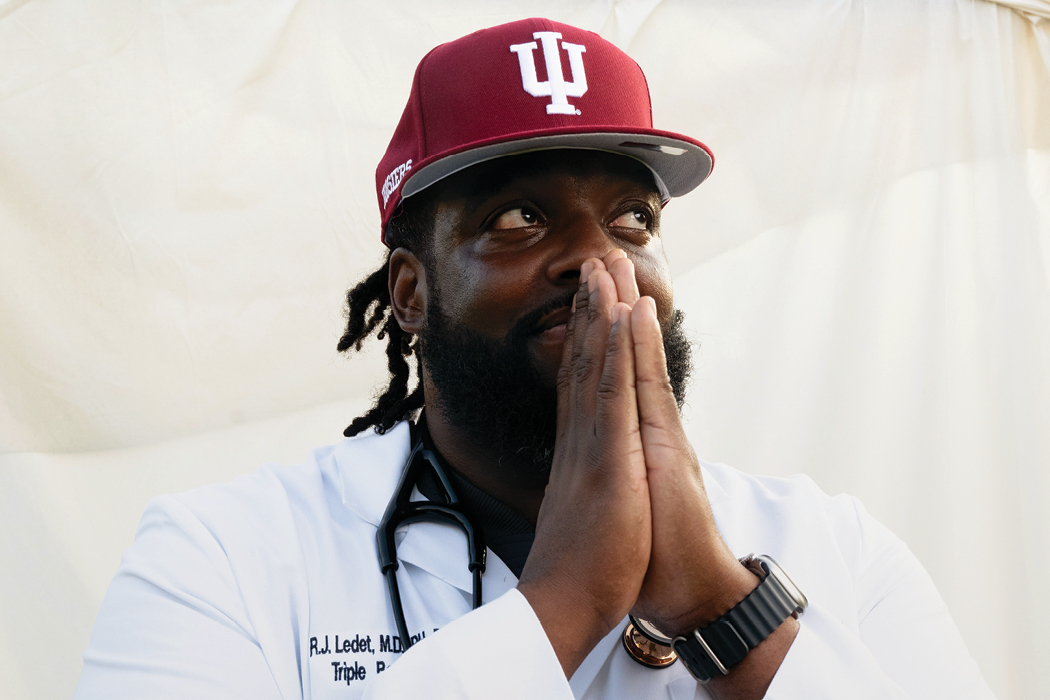17 Ways IU Is Rising to the (Grand) Challenge

In 2016, IU President Michael A. McRobbie announced the Grand Challenges program to solve some of our state’s and world’s most pressing problems. Through extensive, interdisciplinary work across six campuses, IU has since developed cancer-killing treatments, helped communities adapt to climate change, and so much more. Here’s just a sampling of the progress we’ve made.
Prepared for Environmental Change
- A bird wearing a GPS backpack? It’s a real thing. The tracking equipment was invented by an IU research fellow to study wildlife migration and adaptation patterns in birds and predict the impact of climate change on local communities.
- Will climate change generate a boom in the pests and invasive species populations? Non-native plant and animal species are big threats, so IU researchers are setting up surveillance systems to keep their eye on unwelcome geographic guests.
- It’s easy to take our water supply for granted. But with climate change, nothing is guaranteed. IU is modeling future climate scenarios to predict—and avert—potential water system shortfalls.
- Trees are our natural ally in combating a warming planet. That’s why IU is measuring the benefits of green spaces in cities and towns and studying how climate change will impact existing forests.
- As the planet warms, it’s crucial to make efficient use of soil nutrients in farming to protect food supplies. IU researchers are studying biological, geological, and chemical cycles that affect agriculture’s environmental footprint.
Precision Health Initiative
- In pursuit of Alzheimer’s treatment and prevention, the IU School of Medicine established the Alzheimer’s Disease Drug Discovery Center to improve, diversify, and reinvigorate Alzheimer’s disease drug development.
- IU researchers have discovered how to predict whether triple negative breast cancer will recur in specific patients. What’s more, they can forecast which women are likely to remain disease-free.
- By studying the donated tumor cells of Tyler Trent, a former Purdue student who died of cancer in 2019, childhood sarcoma researchers at IU discovered a breakthrough drug therapy that halts osteosarcoma cancer growth.
- IU is reaching out to rural Indiana residents via person-to-person health interviews to better recognize the factors that contribute to poor health conditions in our state.
- An IU research team established the Indiana Multiple Myeloma Biobank Study in an effort to help cure the blood cancer. The IU School of Medicine was also selected as the site for a Phase III clinical trial of potential treatments.
- To stop the widespread progression of diabetes in Indiana, IU researchers are analyzing the genetic makeup of those at highest risk of developing the disease—particularly in women with gestational diabetes.
Responding to the Addictions Crisis
- An IU study recently identified the difficulty health care providers face in obtaining the government waiver needed to prescribe the opioid addiction treatment drug buprenorphine—an important finding for solution-seeking policymakers.
- Drawing on his background in both mechanical engineering and neuroscience, an IU researcher is investigating whether drug cravings may be halted through painless, noninvasive brain stimulation.
- A researcher from the Department of Chemistry and Chemical Biology is developing a new technology that would simplify synthetic drug testing, allowing for more rapid and less expensive detection of synthetic drugs that are currently going undetected.
- IU researchers are working to identify the nature and magnitude of addiction stigma in Indiana, examining locally specific components of stigma and how they differ across contexts within one state.
- IU is helping provide education, training, and certification to current and future health care professionals, equipping them with the skills and tools needed to serve as crucial lifelines to those struggling with addiction.
- IU has helped train 55 community mental health center staff providers in evidence-based intervention techniques to reduce substance use among justice system-involved youth.
If you would like to help advance the important work of the Grand Challenges program, please contact Valerie Gill, associate vice president of business partnerships, at 812-855-8830 or obp@iu.edu. You can also use the following Give Now links to support these programs today.
To support the Prepared for Environmental Change Grand Challenge:
To support the Precision Health Initiative Grand Challenge:
To support the Responding to the Addictions Crisis Grand Challenge:
This article was originally published in the fall 2020 issue of Imagine magazine.
Tags from the story
Written By
A. Price
A resident of the Hoosier state since grade school, Alex forged a friendship with “tried and true” IU upon becoming a writer at the IU Foundation.




